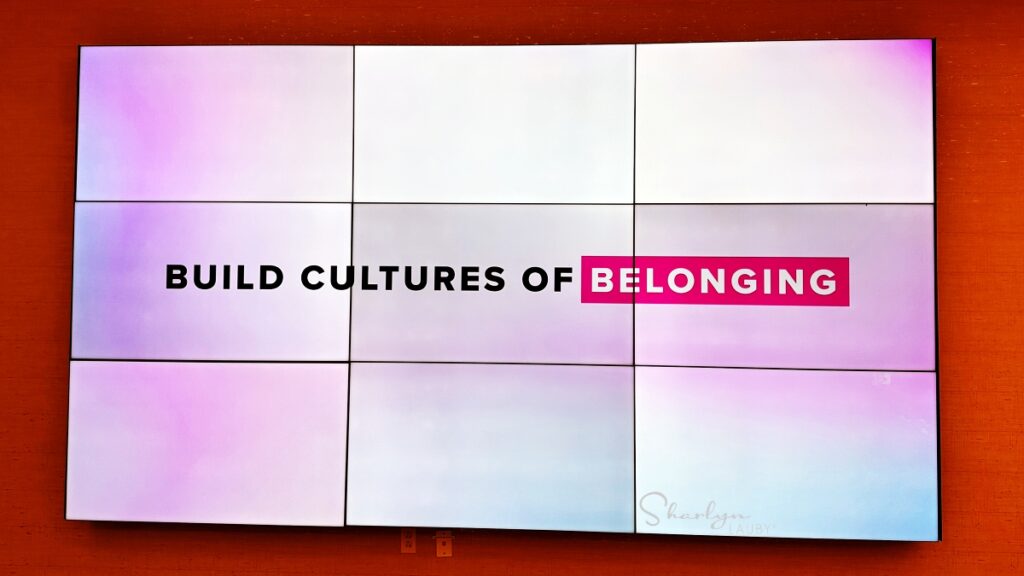Estimated reading time: 5 minutes
According to a LinkedIn study, 76% of candidates and employees say that diversity is important when considering job offers and 80% said that they want to work for an organization that values DE&I (diversity, equity, and inclusion). There are also several studies that show how companies that place an emphasis on DE&I outperform their competition.
However, these outcomes are predicated on organizations not simply talking about diversity, equity, and inclusion but also doing something about it. That’s why I wanted to chat with Michael Bach, who is an expert in the areas of diversity, equity, and inclusion (DE&I). Michael has been recognized globally as a thought leader in the DE&I space and is the author of two books “Birds of All Feathers: Doing Diversity and Inclusion Right” and “Alphabet Soup: The Essential Guide to LGBTQ2+ Inclusion at Work”.
Michael, welcome to HR Bartender. I always like to start conversations like ours with a definition. Tell us how you define inclusion?
[Bach] I see inclusion as a state of being. An inclusive space – be it a place of work, a place of learning, a place of healing – is one where a person can be their whole self in; where the things that make them ‘different’ (aka their diversity) are not hindrances to being in that space.
As an example, as a member of the LGBTQIA+ community, there are many states right now that are not safe for me because of the 700+ pieces of anti-LGBTQIA+ legislation that have been tabled or passed this year so far. Florida is the ultimate example: I do not feel safe in Florida, and therefore, I do not feel included in Florida. Inclusion is an aspirational state that we should all be working toward.
Let’s talk about inclusion at work. How can HR convince the organization that diversity and inclusion are two different things?
[Bach] This is a bit difficult because it’s fundamental to the conversation. Diversity is about the things that make us different, and inclusion is about being in spaces where I can be different without fear of repercussion. To put it more simply, diversity is a fact – it has always existed and will continue to exist. We are all diverse in some way (but we are not all underrepresented and marginalized). Inclusion is a choice. We can choose to create inclusive spaces, or we can choose to create exclusive spaces. The choice is ours. State Legislators in Florida are choosing to be exclusive.
What do organizations get right when it comes to creating more inclusive workplaces? And what do they still need to work on?
[Bach] Where I give organizations points right now is that they get that they have to do something. Most organizations I’ve worked with recognize that change must happen because their current state isn’t working.
Where they’re not succeeding is in recognizing that diversity and inclusion isn’t a ‘program’. There’s a LOT of performative action happening. We see pride flags in June and Black History Month celebrations in February, but that doesn’t affect change. People are still Black in March, April, and May (and obviously every day of the year), and they’re facing anti-Black racism every day of the year. Where organizations fail is in not recognizing that we need systemic change.
From an organizational perspective, who should be accountable for inclusion?
[Bach] That’s easy: Leadership. Tone from the top is crucial when it comes to diversity, equity, and inclusion (DE&I). If leadership doesn’t buy in, then you’ve failed before you’ve begun. As the saying goes, ‘What’s important to my boss is important to me’. But even more importantly, if leadership doesn’t take ownership of the DE&I agenda, then you can and will really struggle to make progress. If an organization’s leadership is being held accountable for DE&I, then it will get done!
Last question. Often HR is very active in DE&I activities. If HR pros could do one thing to improve their understanding of inclusion, what would it be?
[Bach] HR professionals must accept that they are the product of the same systems as everyone else. The same is the case for DE&I professionals. We are not free of bias. But I’ve lost count of the number of times when HR professionals feel they’re ‘better’ than most when it comes to DE&I. I hear CHROs say, “My HR team doesn’t need the training because they ‘get it’.” Wrong!
HR professionals need the training more than anyone. We are at the frontline of this effort. So, the one thing that HR professionals need to do to improve their understanding of inclusion is to be open. They need to accept that they are just as flawed as everyone else. They need to get uncomfortable. They need to be on a constant journey of learning and seek out information to help improve their understanding. There is no endpoint in that journey. There is only more journey.
I want to extend a huge thanks to Michael for sharing his knowledge with us. If you want to learn more about inclusion, be sure to check out Michael’s website.
Also, if you specifically want to learn more about how to measure the results of your inclusion efforts, Michael will be speaking at this year’s Society for Human Resource Management (SHRM) Inclusion conference. The conference will be held in Savannah, Georgia on October 29 – November 1, 2023. Registration details can be found on the SHRM website. And Michael’s session will be available in-person and virtually.
Michael’s comment about leadership and accountability really resonated with me because I believe that leadership is defined as “the ability to influence others”. Which means that everyone is a leader, and everyone is accountable for inclusion. Yes, senior management needs to set the tone and approve the resources, but everyone is responsible. If we want more inclusive workplaces, we have to be a part of the solution.
Image captured by Sharlyn Lauby while exploring the streets of San Diego, CA
The post Workplace Inclusion: Organizations Must Choose to Take Action appeared first on hr bartender.




0 Commentaires